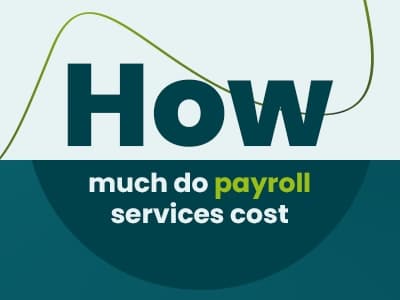Many businesses now rely on software to manage payroll instead of handling it manually. In other words, payroll software isn’t just for convenience; instead, it’s a strategic move that reduces errors, saves time, and ensures that businesses remain compliant. But how much does it actually cost?
The answer depends on several factors, including company size, payroll frequency, and the level of service required. With different pricing models and potential hidden fees, it's important to understand not just the costs, but also what to watch for before committing to a provider. This article breaks down both—what you can expect to pay and what to consider when evaluating your options.
Free Payroll Services

These types of payroll services are often taken up by very small companies operating on tight budgets. While these tools may lack some advanced features of paid services, they often provide essential functionalities such as paycheck calculations, tax form generation, and basic reporting.
Options like Payroll4Free and HR.my are notable examples, offering features like payroll and time tracking. However, it's important to note that some free payroll software may have limitations, such as a cap on the number of employees or the absence of support. Hence, potential customers ought to assess their specific needs and the capabilities of free payroll solutions.
Low-Cost Payroll Services

For small businesses seeking budget-friendly payroll solutions, several providers offer payroll services at competitive rates. Square Payroll, for instance, provides a straightforward pricing model with a base fee of $35/month plus $6/employee, making it an attractive option for startups and small enterprises. Similarly, Gusto offers plans starting at $54/month plus $7/ employee, catering to businesses that require basic payroll functionalities.
These low-cost payroll services typically include essential features such as automated tax calculations, direct deposit, and employee self-service portals. Bear in mind, however, that they may charge additional fees for services like year-end tax form filings or integrations with other software platforms.
Professional Employer Organizations (PEO)

Another option for smaller businesses is to simply outsource all their human resources (HR) functions, including payroll, to a PEO. This way, they still retain control over their company while ensuring that all HR headaches are taken care of by a company that specializes in HR. PEO firms can also navigate amongst various regulations and offer a number of benefits to employees that small companies themselves would be hard-pressed to provide themselves.
One drawback of this model, however, is that the company itself is still responsible for any workplace violations that may occur. In addition, PEO companies tend to be more expensive than in-house payroll solutions, meaning that businesses need to have a sizable amount of capital with them.
Company | Pricing |
GustoHR | Offers multiple pricing tiers, starting at $54/month, plus $7/user |
Square Payroll | Offers two pricing tiers, with the full-service payroll being priced at $35/month, plus $6/user/month |
Wave Payroll | Wave offers two pricing models; the first one is a Starter Plan, which comes for free; the second is the Pro Plan priced at $16/month |
Justworks | Comes with multiple pricing tiers, with the first one being the Payroll Plan, priced at $8/month, plus a $50/month base fee |
OnPay | A simple pricing structure that includes all features for the low monthly cost of $49 base fee plus $6/person |
Remote | Offers multiple pricing plans for payroll, with the starting plan being priced around $29/employee/month |
BambooHR | Provides three pricing plans, all of which are based on a custom pricing model that varies from business to business |
Deel | Offers many pricing tiers, with the lowest pricing tier (the Global Payroll tier) being offered at $29/user/month |
ADP | ADP offers a number of pricing tiers, with each having a custom price that changes according to the company and the features they have selected |
Paycom | Custom pricing that can only be available upon request |
Disclaimer: The pricing is subject to change.

The cost of payroll services is influenced by several key factors. The number of pay periods per year plays a significant role; companies that run payroll weekly or biweekly may incur higher costs compared to those with monthly pay cycles. The composition of the workforce also affects pricing—managing a mix of full-time employees and independent contractors can increase complexity and, consequently, costs.
Additionally, the range of services required, such as tax filing, direct deposit, and benefits administration, can impact the overall expense. Customization needs, compliance requirements, and the level of customer support desired are other elements that can influence pricing structures. Therefore, businesses should carefully evaluate these factors to select a payroll service that aligns with their operational needs and budget constraints.
By now, you must have a good idea about the typical cost of a payroll solution. The next step is to evaluate your own organization—its size, employee structure, pay frequency, and specific needs—and match those with the right payroll software. Consider what features you really need as well as the budget that you currently have. Demos or free trials can be a great help too, as they help in assessing how well the payroll software functions.
Still looking for another kind of software for some other problem? Come on down to our resource center and get the answers to any questions you may have.
